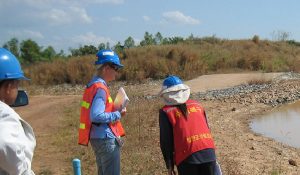North West private sector moves closer to stabilisation in June

The North West private sector ended the second quarter of the year on a more stable footing, following a sharp downturn in activity induced by the coronavirus pandemic, according to the latest UK regional PMI data from NatWest.
The headline North West Business Activity Index – a seasonally-adjusted index that measures the month-on-month change in the combined output of the region’s manufacturing and service sectors – climbed sharply to 48.4 in June, up from May’s 33.0 and marking a further improvement from a record low in April.
The result was broadly in line with the UK as a whole.
However, being below 50, the index still signalled contraction, with services activity particularly subdued.
Manufacturing production showed signs of picking up, albeit from a low base.
June saw the seasonally-adjusted New Business Index climb further from April’s record low and register close to the 50.0 no-change threshold, thereby signalling a near-stabilisation of demand for goods and services across the North West private sector.
While several firms reported that new business continued to be subdued by the COVID-19 pandemic, others noted a gradual pick-up in demand as customers reopened and market sentiment improved.
Firms in the North West reported increased optimism towards the outlook for activity over the coming year in June, with more businesses hopeful of a return to growth as lockdown measures to prevent the spread of COVID-19 are eased.
Sentiment was at its highest since before the escalation of the virus outbreak in March, and broadly in line with the UK average.
Underlying data indicated that local service sector businesses were slightly more upbeat about the year-ahead outlook than their manufacturing counterparts.
Lower workloads and associated efforts to save costs saw firms in the North West cut payroll numbers for the fifth straight month in June.
The rate of job losses eased to the weakest since March, though it was still marked and faster than any other time since the global financial crisis.
The decline in regional employment was broad-based by sector.
More positively, however, it remained slower than that seen across the UK as a whole.
A sustained reduction in incoming new business meant that firms in the North West continued to clear backlogs of work during June.
However, though remaining sharp by historical standards, the rate of depletion eased further from April’s survey record to the slowest since February.
Sector level data suggested that local manufacturers operated closer to capacity than services firms.
Firms’ input costs ticked up in June, following back-to-back decreases in April and May that were the first in more than four years.
The increase, which surveyed firms partly linked to higher prices for food and personal protective equipment, was only marginal however, as weak demand continued to undermine supplier pricing power.
The results in the North West broadly mirrored those seen across the UK as a whole.
As was the case in May, firms in the North West reported broadly no change in average output prices during June.
This compared with a further – albeit slower – decline across the UK as a whole.
Prices continued to diverge at the sector level, with manufacturers raising charges in line with higher costs, while service providers discounted prices further.
Richard Topliss, chair, NatWest North regional board, said: “There was more good news from the PMI survey in June showing the regional economy to be making positive progress.
“However, activity remains subdued, particularly in the services sector where COVID 19 and associated containment measures continue to disrupt businesses and suppress demand.”
He added: “Job numbers were down once again during June and there will be more difficult decisions for businesses as they transition away from the furlough scheme in the coming months, but a rise in business confidence shows there’s growing light at the end of the tunnel.”







